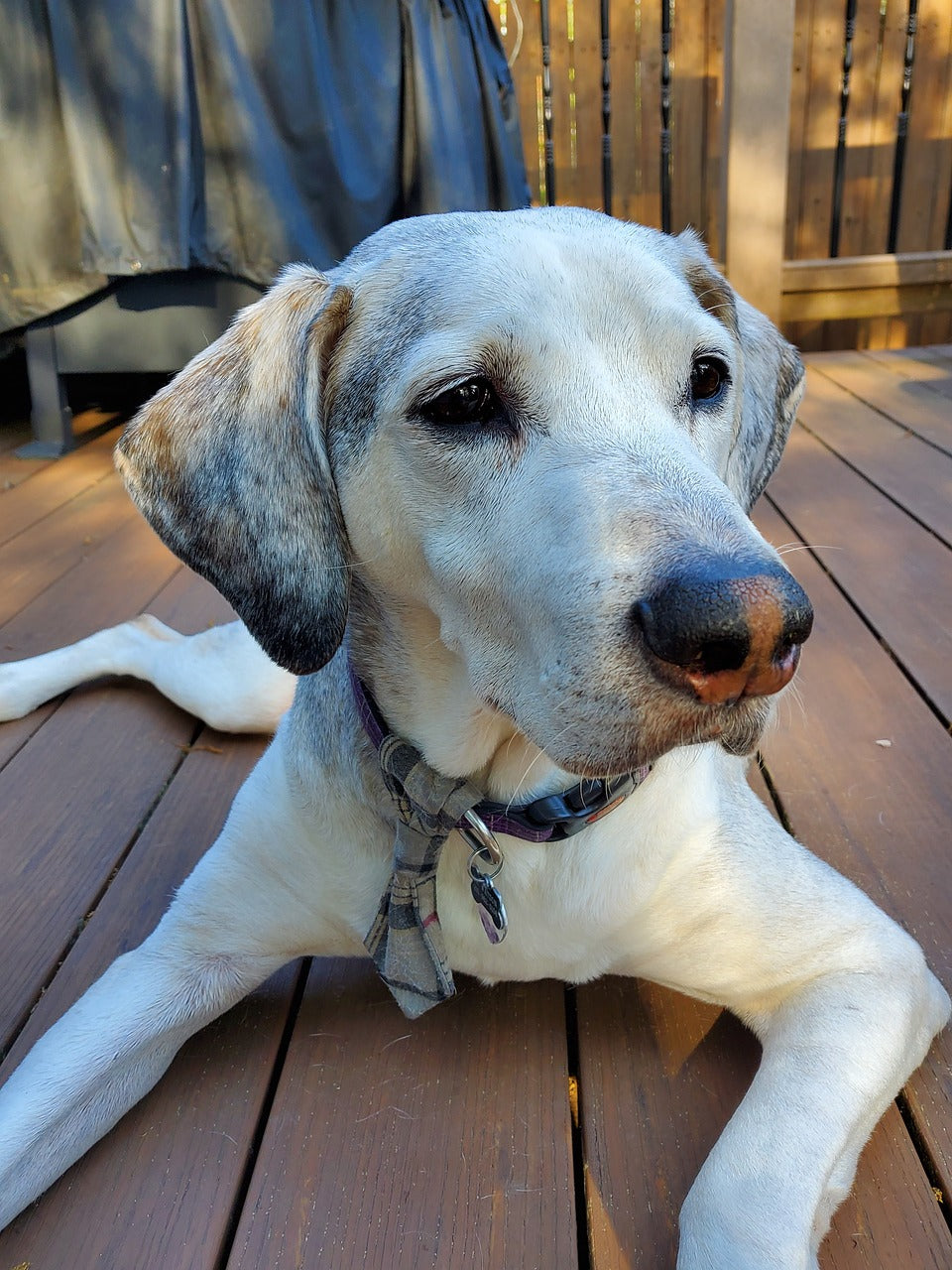Older Dogs Need Love Too!
Hello, DogStoreOnline community!
Adopting a senior dog can be an incredibly rewarding experience. Older dogs often find themselves in shelters due to circumstances beyond their control, such as the passing of their owner or changes in their previous family's situation. These dogs still have plenty of love to give and can make wonderful companions. However, adopting a senior dog does come with specific considerations. Here’s a guide to help you understand the unique aspects of bringing a senior dog into your home.
Benefits of Adopting a Senior Dog
-
Established Temperament
- Senior dogs typically have well-established personalities, making it easier to find a dog whose temperament fits well with your lifestyle. What you see is generally what you get.
-
Calmer Demeanor
- Older dogs are usually more relaxed and less energetic than puppies. They’re often content with moderate exercise and enjoy a more sedentary lifestyle, making them ideal for less active households or older adults.
-
Already Trained
- Many senior dogs come with basic training and house manners, saving you time and effort in teaching these skills from scratch. They are often familiar with commands, walking on a leash, and housebreaking.
-
Gratitude and Bonding
- Senior dogs can be incredibly grateful for being given a second chance. The bond you form with an older dog can be profound, as they often seem to understand that you’ve provided them with a loving home in their later years.
Considerations for Adopting a Senior Dog
-
Health Issues
- Older dogs may come with health concerns such as arthritis, dental problems, or vision and hearing loss. Be prepared for potential medical expenses and regular vet visits to manage their health needs.
-
Shorter Time Together
- Senior dogs naturally have a shorter lifespan compared to younger dogs. While this can be emotionally challenging, the time you spend together can be deeply meaningful and fulfilling.
-
Dietary Needs
- Senior dogs often have specific dietary requirements to support their aging bodies. You may need to invest in specialized senior dog food and supplements to ensure they receive proper nutrition.
-
Exercise Requirements
- While senior dogs generally require less exercise than younger dogs, they still need regular, gentle activity to maintain their health and mobility. Tailor their exercise routine to their physical capabilities.
-
Adaptability
- Older dogs may take longer to adjust to a new home and routine, especially if they’ve experienced significant changes or trauma. Patience and gentle encouragement are key to helping them settle in.
Preparing Your Home for a Senior Dog
-
Comfortable Sleeping Area
- Provide a soft, supportive bed in a quiet area where your senior dog can rest undisturbed. Orthopedic beds can be particularly beneficial for dogs with arthritis or joint issues.
-
Accessible Spaces
- Make your home senior-dog-friendly by ensuring easy access to their favorite spots. Use ramps or pet stairs to help them reach higher areas like the sofa or bed without straining.
-
Safety Measures
- Remove hazards that could cause slips or falls, especially if your dog has mobility issues. Place non-slip mats on slippery floors and ensure there are no obstacles in their path.
-
Regular Check-Ups
- Schedule regular veterinary check-ups to monitor your dog’s health. Early detection and management of health issues can improve their quality of life and longevity.
-
Mental Stimulation
- Keep your senior dog mentally engaged with interactive toys, gentle play, and positive reinforcement training. Mental stimulation is essential for their cognitive health.
Building a Bond with Your Senior Dog
-
Patience and Understanding
- Be patient as your senior dog adjusts to their new environment. Understand that it may take time for them to feel comfortable and secure in their new home.
-
Consistent Routine
- Establish a consistent daily routine for feeding, walking, and playtime. Predictability helps senior dogs feel secure and reduces anxiety.
-
Quality Time
- Spend quality time with your senior dog through gentle play, grooming, and simply being present. Your companionship and attention are invaluable to them.
-
Positive Reinforcement
- Use positive reinforcement to encourage good behavior and build trust. Treats, praise, and affection go a long way in strengthening your bond.
Conclusion
Adopting a senior dog can bring immense joy and fulfillment to both you and your new companion. While there are specific considerations to keep in mind, the love and gratitude you receive from a senior dog are truly special. At DogStoreOnline, we support all pet adoptions and offer a range of products to ensure your senior dog has everything they need for a comfortable and happy life.
Welcoming a senior dog into your home is a noble and heartwarming choice, providing a loving home to a dog in their golden years.
Warm regards,
The DogStoreOnline Team
Share your senior dog adoption stories and photos with us on social media using the hashtag #DogStoreOnlineSeniorDogs for a chance to be featured on our page!









